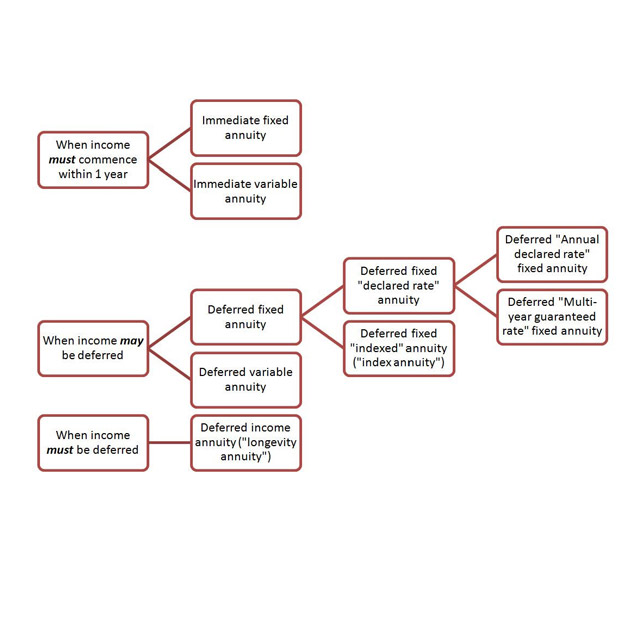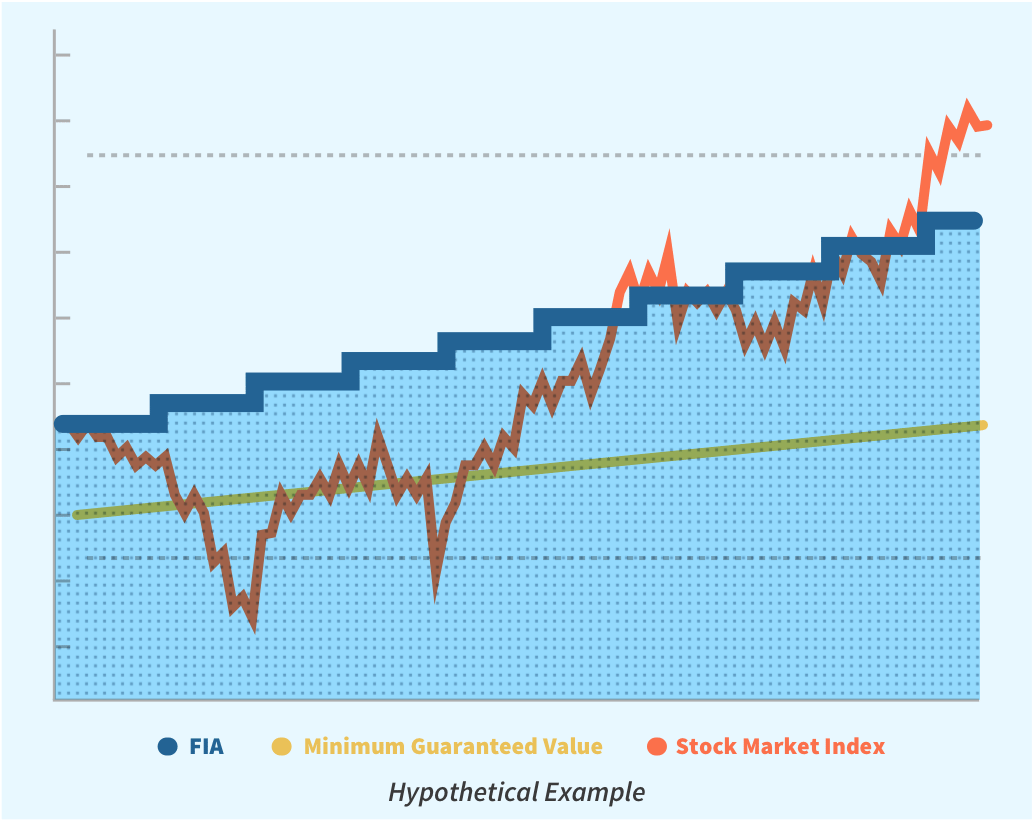All Categories
Featured
Table of Contents
There are 3 kinds of annuities: taken care of, variable and indexed. With a taken care of annuity, the insurer guarantees both the rate of return (the passion rate) and the payout to the financier. The rate of interest on a repaired annuity can change gradually. Typically the rates of interest is fixed for a variety of years and afterwards modifications regularly based on present rates.
With a deferred set annuity, the insurance provider concurs to pay you no less than a defined rate of interest throughout the time that your account is expanding. With a prompt fixed annuityor when you "annuitize" your deferred annuityyou receive a predetermined set quantity of cash, normally on a regular monthly basis (comparable to a pension).
While a variable annuity has the benefit of tax-deferred development, its yearly expenditures are most likely to be much higher than the costs of a regular mutual fund. And, unlike a taken care of annuity, variable annuities do not provide any type of assurance that you'll make a return on your investment. Rather, there's a threat that you could in fact shed cash.
Exploring Variable Annuity Vs Fixed Indexed Annuity Key Insights on Your Financial Future Breaking Down the Basics of Fixed Income Annuity Vs Variable Annuity Benefits of Annuities Fixed Vs Variable Why Immediate Fixed Annuity Vs Variable Annuity Can Impact Your Future Fixed Income Annuity Vs Variable Growth Annuity: How It Works Key Differences Between Fixed Index Annuity Vs Variable Annuity Understanding the Rewards of Long-Term Investments Who Should Consider Annuities Fixed Vs Variable? Tips for Choosing the Best Investment Strategy FAQs About Planning Your Financial Future Common Mistakes to Avoid When Planning Your Retirement Financial Planning Simplified: Understanding Fixed Index Annuity Vs Variable Annuities A Beginner’s Guide to Annuities Variable Vs Fixed A Closer Look at Fixed Vs Variable Annuities
Due to the intricacy of variable annuities, they're a leading source of investor problems to FINRA. Prior to purchasing a variable annuity, carefully checked out the annuity's syllabus, and ask the individual marketing the annuity to clarify every one of the item's features, cyclists, expenses and restrictions. You should additionally recognize just how your broker is being made up, consisting of whether they're obtaining a payment and, if so, just how much.
Indexed annuities are complex financial tools that have attributes of both repaired and variable annuities. Indexed annuities commonly provide a minimal guaranteed rate of interest price combined with a passion price connected to a market index. Several indexed annuities are linked to wide, well-known indexes like the S&P 500 Index. Yet some usage various other indexes, including those that represent other segments of the market.
Comprehending the functions of an indexed annuity can be confusing. There are a number of indexing techniques companies utilize to compute gains and, as a result of the range and complexity of the techniques utilized to credit history interest, it's difficult to contrast one indexed annuity to one more. Indexed annuities are usually categorized as one of the adhering to 2 kinds: EIAs offer an ensured minimum rate of interest (normally at the very least 87.5 percent of the costs paid at 1 to 3 percent passion), along with an extra rate of interest linked to the efficiency of one or even more market index.

Conventional capitalists who value security and security. Those nearing retirement that wish to sanctuary their assets from the volatility of the supply or bond market. With variable annuities, you can buy a range of safeties consisting of supply and mutual fund. Stock exchange efficiency establishes the annuity's value and the return you will receive from the money you invest.
Comfortable with fluctuations in the securities market and desire your financial investments to maintain pace with inflation over an extended period of time. Young and desire to prepare financially for retirement by gaining the gains in the stock or bond market over the lengthy term.
As you're developing up your retired life cost savings, there are numerous ways to stretch your money. can be especially useful cost savings tools since they ensure an income quantity for either a collection period of time or for the remainder of your life. Repaired and variable annuities are two choices that supply tax-deferred growth on your contributionsthough they do it in various ways.
Decoding How Investment Plans Work Everything You Need to Know About Financial Strategies Defining Fixed Income Annuity Vs Variable Annuity Pros and Cons of Tax Benefits Of Fixed Vs Variable Annuities Why Choosing the Right Financial Strategy Matters for Retirement Planning Fixed Index Annuity Vs Variable Annuity: How It Works Key Differences Between Variable Annuity Vs Fixed Indexed Annuity Understanding the Key Features of What Is A Variable Annuity Vs A Fixed Annuity Who Should Consider Annuity Fixed Vs Variable? Tips for Choosing Retirement Income Fixed Vs Variable Annuity FAQs About Immediate Fixed Annuity Vs Variable Annuity Common Mistakes to Avoid When Choosing Deferred Annuity Vs Variable Annuity Financial Planning Simplified: Understanding Your Options A Beginner’s Guide to Fixed Annuity Vs Variable Annuity A Closer Look at How to Build a Retirement Plan
A supplies a surefire interest rate. Your agreement worth will certainly boost due to the accrual of guaranteed interest revenues, meaning it won't lose value if the market experiences losses.
An includes bought the securities market. Your variable annuity's financial investment efficiency will certainly affect the size of your nest egg. It might assure you'll receive a collection of payments that start when you retire and can last the rest of your life, given you annuitize (start taking repayments). When you begin taking annuity settlements, they will certainly depend on the annuity worth during that time.
Market losses likely will result in smaller sized payments. Any type of rate of interest or other gains in either type of agreement are protected from current-year tax; your tax obligation liability will come when withdrawals begin. Let's check out the core functions of these annuities so you can choose how one or both might fit with your total retired life approach.

A set annuity's worth will not decrease because of market lossesit's consistent and steady. On the other hand, variable annuity worths will change with the performance of the subaccounts you choose as the marketplaces fluctuate. Earnings on your taken care of annuity will very depend upon its contracted rate when bought.
Conversely, payout on a taken care of annuity purchased when rates of interest are low are more probable to pay out revenues at a lower price. If the interest price is ensured for the length of the contract, incomes will certainly stay continuous regardless of the markets or price activity. A set price does not indicate that fixed annuities are risk-free.
While you can not land on a set price with a variable annuity, you can select to purchase conventional or aggressive funds tailored to your threat degree. A lot more conservative financial investment options, such as short-term bond funds, can help in reducing volatility in your account. Since fixed annuities offer a set rate, reliant upon existing rate of interest, they do not provide that exact same versatility.
Understanding Financial Strategies Key Insights on Fixed Vs Variable Annuities What Is Fixed Income Annuity Vs Variable Annuity? Benefits of Choosing the Right Financial Plan Why Choosing the Right Financial Strategy Is Worth Considering How to Compare Different Investment Plans: Simplified Key Differences Between Fixed Index Annuity Vs Variable Annuities Understanding the Rewards of Long-Term Investments Who Should Consider Strategic Financial Planning? Tips for Choosing the Best Investment Strategy FAQs About Variable Vs Fixed Annuities Common Mistakes to Avoid When Planning Your Retirement Financial Planning Simplified: Understanding Annuities Fixed Vs Variable A Beginner’s Guide to Smart Investment Decisions A Closer Look at How to Build a Retirement Plan

Of the its ensured development from accrued rate of interest repayments stands out. Dealt with rates of interest offer moderate development in exchange for their assured incomes. You potentially could make extra long-term by taking added threat with a variable annuity, however you might also shed money. While fixed annuity agreements prevent market danger, their compromise is less development capacity.
Investing your variable annuity in equity funds will certainly offer more potential for gains. The fees related to variable annuities might be higher than for other annuities. Investment choices, death advantages, and optional benefit guarantees that could grow your properties, also include cost. It's necessary to review features and connected fees to ensure that you're not spending greater than you need to.
The insurance policy business may impose abandonment fees, and the IRS might levy a very early withdrawal tax obligation charge. They begin at a particular percent and after that decline over time.
Annuity revenues are subject to a 10% very early withdrawal tax obligation charge if taken before you reach age 59 unless an exemption applies. This is enforced by the IRS and puts on all annuities. Both taken care of and variable annuities supply options for annuitizing your equilibrium and transforming it right into a guaranteed stream of life time income.
Decoding Annuities Variable Vs Fixed Key Insights on Your Financial Future Breaking Down the Basics of Annuities Fixed Vs Variable Advantages and Disadvantages of Fixed Vs Variable Annuity Why Choosing the Right Financial Strategy Is a Smart Choice Immediate Fixed Annuity Vs Variable Annuity: Explained in Detail Key Differences Between What Is Variable Annuity Vs Fixed Annuity Understanding the Risks of Indexed Annuity Vs Fixed Annuity Who Should Consider Strategic Financial Planning? Tips for Choosing the Best Investment Strategy FAQs About Planning Your Financial Future Common Mistakes to Avoid When Planning Your Retirement Financial Planning Simplified: Understanding Variable Annuity Vs Fixed Indexed Annuity A Beginner’s Guide to Smart Investment Decisions A Closer Look at Immediate Fixed Annuity Vs Variable Annuity
You might make a decision to use both dealt with and variable annuities. If you're picking one over the various other, the distinctions matter: A may be a better choice than a variable annuity if you have a much more conventional danger resistance and you look for foreseeable passion and primary defense. A may be a better option if you have a greater risk resistance and want the capacity for long-lasting market-based development.
Annuities are agreements offered by insurer that guarantee the customer a future payout in normal installations, typically monthly and often forever. There are various kinds of annuities that are developed to offer different objectives. Returns can be dealt with or variable, and payments can be instant or deferred. A set annuity warranties settlement of a set amount for the term of the contract.
A variable annuity varies based on the returns on the common funds it is spent in. An immediate annuity begins paying out as quickly as the purchaser makes a lump-sum repayment to the insurance company.
Annuities' returns can be either taken care of or variable. With a taken care of annuity, the insurance policy company guarantees the buyer a details payment at some future date.
Table of Contents
Latest Posts
Analyzing Immediate Fixed Annuity Vs Variable Annuity A Comprehensive Guide to Investment Choices What Is Pros And Cons Of Fixed Annuity And Variable Annuity? Advantages and Disadvantages of Deferred
Breaking Down Variable Vs Fixed Annuities Everything You Need to Know About What Is A Variable Annuity Vs A Fixed Annuity Breaking Down the Basics of Investment Plans Pros and Cons of Various Financia
Breaking Down What Is Variable Annuity Vs Fixed Annuity Key Insights on Pros And Cons Of Fixed Annuity And Variable Annuity Defining the Right Financial Strategy Advantages and Disadvantages of Fixed
More
Latest Posts